We Meet At Last
Believe it or not, Amy and I (Shelli) have been working together for over six months, corresponding on an almost-daily basis, but we had never met face-to-face! (We have talked on the phone a couple of times though!)
Well, that has changed. This past weekend I was able to meet Amy and her husband, Jason, at the National Alliance for Secular Homeschooler’s conference in Atlanta, Georgia. We were there to promote home / school / life magazine, and it was fun to watch people flip through the print copies of home / school / life and tell us what a beautiful resource it is – chock full of information for homeschoolers and other conscientious parents!
We were asked what set home / school / life apart from other homeschooling magazines, and Amy said something that I think is important to impart. Not only do we offer lots of useful lesson ideas, how-tos, encouragement, first person narratives and interviews with other homeschoolers, we offer real reporting on subjects that are important to homeschoolers, such as how to cope with loneliness, financial stress, or what steps one needs to take for a certain career path. We do a lot of research and interviews to write our features. In short, we offer real journalism. And it’s in a beautiful format to boot!
I love meeting new homeschoolers, but yesterday, I had even more fun meeting and chatting with Amy and Jason. They are incredibly sweet people, and it was a pleasure getting to know them a little better. I already know they are hard-working people, and it’s great to be part of this team.
We enjoyed talking about home / school / life and its future, and I thought I would share some of that with you.
First, we congratulated ourselves for putting together such a beautiful magazine with such a small staff! Amy does most of the writing and all the layout and other nitty-gritty details, and I do a lot of writing, proofreading and the social web stuff. We also have a few columnists whom we rely on, and their work makes the magazine sparkle. If you look at any other masthead on another magazine, you’ll see they have much bigger staffs! (So now you know why our Facebook and Twitter page is very quiet, especially while we’re in production. It’s hard to do it all!)
Jason is our advertising and promotion man, and he’s been working hard recently to get the word out about the magazine. For example, members of N.A.S.H. will be able to subscribe to home / school / life for a discounted price -- that should be available soon. We are reaching out to other associations and conferences as well. If you want to partner with home / school / life, Jason is your man.
Our fall issue is turning out to be another great issue. We’re going to tell you what the best cities are to homeschool in in the United States, how you can become a better photographer, and give you some important questions to ask yourself about your homeschool journey as well as lots of unit studies and inspiration to get you through your day.
We had a few print copies of the magazine, and oh my – they are beautiful! But we need a lot more subscribers before we can make them available to you. If it’s something you would like, please tell us. Of course, we don’t have to have a print magazine – being able to click on all those links in the digital issue is pretty cool too – but if the demand is there, we will make it an option!
Pretty soon we’ll be introducing you to some new staff writers! It’s very exciting to bring new people on board with their fresh ideas, but I’m going to save those details for the newsletter and future blog posts.
After the fall issue comes out, there are a lot of things Amy and I want to turn our attention to. One of those is revamping our website. Though we plan to keep it as simple and beautiful as possible, we want to be able to do more with it. For example:
We’re going to have a store! We will be selling home / school / life magazine issues and more….
And that’s the other exciting news: we’ll be working on some extra resources that we think you will find useful on your homeschool journey.
With such a small staff and budget, we can’t do everything as fast as we would like, but I am like that turtle in the story – going slow but sure can yield the best results! This is only the beginning of home / school / life. I know it will take time for us to make the website, store, hire more staff, and get more resources out to you, but it will happen. I hope you will join us for the journey.
We always welcome your ideas and comments. E-mail us.
And if you like what we do and want to support us, please consider subscribing, renewing or giving a subscription for a gift for only $15 a year. That’s not much for four awesome issues, coming straight to your inbox every season.
Mindful Homeschool: Learning to Let Your Homeschool Worries Go
I like to turn my worries into what Patricia Zaballos so eloquently called wondering in her first column. Not all wondering is bad, and it comes with the territory of homeschooling.
We hear this advice a lot. “Don’t sweat the small stuff.” It sounds easy, but it’s not, and part of this is because when we’re worried about something, it doesn’t feel small. It feels big and important. In that moment, it may be.
You could try what I do. I ask myself: “In twenty years, will this matter?” That does help sometimes, but when it comes to homeschooling my children, the answer to that question isn’t as straightforward.
If my son doesn’t learn to read, will that matter in twenty years? You bet!
If I can’t find or create the perfect lesson plans, will that affect my child’s chances of getting into college? Gulp.
If my son starts to talk back to me at the age of seven, are we going to be at odds when he’s an adult? (Holding back tears.)
When it comes to our children, how can we not worry? No one tells you before you have your first baby that having a child is like pulling your heart out of your chest and watching it walk around in this dangerous, complex world. And you never get it back.
I know logically that most of my worries are inconsequential. I remind myself that we will take it one step at a time. I know my child will learn how to read even though he struggles at the moment. It’s all about perseverance. And trial and error. We’ll get through all the bumps somehow.
I like to turn my worries into what Patricia Zaballos so eloquently called wondering in her first column. Not all wondering is bad, and it comes with the territory of homeschooling. Unfortunately, it sounds like it never goes away either:
“It doesn’t seem to matter that I have one kid who has just graduated from college and another starting in the fall…. It’s just the twelve-year-old and me homeschooling these days; you’d think after all this time I’d have things figured out. Nope. Still wondering constantly.”
~ Patricia Zaballos, The Wonder Files, home/school/life, Summer 2014.
I can let go of the inconsequential: The perfectionist in me. I can stop listening to bad advice on how to get my child to read. Instead, I can give it time and my patience. I can let go of wanting to do it my way and try other ways instead. We have the time after all. That’s why we’re homeschoolers.
What have you learned to let go of in your homeschooling journey?
What We Read: July Edition
A reading roundup from our homeschool family.
Summer reading is in full swing over here, which means I have a deliciously gluttonous stack of books to report on. Here's what we're reading by the pool, while we're stirring pots of tomato sauce to can, on the hammock, on the deck, in the car, and pretty much everywhere else.
On Our Own
The Professor and the Madman by Simon Winchester :: I am a little obsessed with the creation of the Oxford English Dictionary. (So much so that I have been known to joke that if we ever have another son, we will have to name him Oedipus so that we can call him OED.) So I relished this book about a little-known piece of its history, a man who contributed more than 10,000 definitions to the dictionary's creation and who also happened to be living in an asylum for the criminally insane.
Little, Big by John Crowley :: Not everybody likes rereading books, but I do—as a kid, I would often flip from the last page of a book I loved right back to the front page so that I could start the whole thing over immediately. I think there's something sort of illuminating about going back to a literary world, and Little, Big is one of those books I can read over and over, finding something new to love every time. It's one of my perfect summer books.
Mimesis: The Representations of Reality in Western Literature by Erich Auerbach :: I read this for a pop culture in philosophy class I'm co-teaching at our homeschool group this fall. (Now watching Doctor Who and Buffy the Vampire Slayer counts as legitimate academic research!) It's an impressively comprehensive look at the history and evolution of Western literature, and each of the essays stands alone pretty well, so it's great for bits-and-pieces reading, which I do a lot of during the summer.
The Magic Treehouse: Dinosaurs Before Dark by Mary Pope Osborne :: I'm feeling super-sentimental watching my son dive into the Magic Treehouse series, just as his sister did before him.
My daughter's been on a feminist biography kick. (I'm not complaining!) I think she was inspired by Girls Think of Everything: Stories of Ingenious Inventions by Women, which we read together last year, and which, if you haven't read it, definitely deserves a spot on your library list. (I love that in addition to giving the histories of some very cool women and girl inventors, it includes resources to get readers started with their own inventions.) She's breezed through Invincible Louisa (about Louisa May Alcott), The Daring Nelly Bly (from our spring issue!), and Rooftop Astronomer: A Story about Maria Mitchell. With biographies (and honestly with most books), I don't worry much about reading level—I just let her grab whatever appeals to her.
Together
The kids were fascinated by the mystery of the princes in the Tower, who vanished somewhere between Richard III and Henry VII's reign, so I thought The Daughter of Time, a mystery novel by Josephine Tey that tackles the topic with modern-day researching detectives, would be a hit. My 12-year-old is captivated—I don't think it had occurred to her that modern-day historians could try to solve historic mysteries.
Continuing my tradition of forcing my children to listen to readalouds of books I loved as a child, we're reading Honestly, Katie John by Mary Calhoun. Happily, this one has proven to be popular with the kids, too, and we've enjoyed reading about tomboy Katie's adventures.
We keep a running list of readaloud books, and everyone adds books to it as they strike our fancies. My daughter read Lloyd Alexander's Vesper Holly adventure series last fall, and we're finally getting around to The Illyrian Adventure for our bedtime readaloud. It's pure fun reading about 19th century American orphan Vesper, her prim-and-proper guardian Brinnie, and their adventures in an invented Adriatic nation.
So that's what we've been reading. What about you?
(We’re Amazon affiliates, so if you purchase something through an Amazon link, we may receive a small percentage of the sale. Obviously this doesn’t influence what we recommend, and we link to places other than Amazon.)
How Do You Homeschool Through a Financial Crisis?
What happens to homeschool life when financial crisis strikes? We talked to three families who've been there, done that, and survived to share the strategies that are seeing them through tough times.
Did you read Money Matters in the Summer 2014 issue? Here's the introduction:
What happens to homeschool life when financial crisis strikes? We talked to three families who've been there, done that, and survived to share the strategies that are seeing them through tough times.
If you read this, and it helped you (or not), we'd love to hear from you on this topic. If you haven't read it, but you feel you have something to say on this issue, you are more than welcome to join the discussion too.
I'll start:
I wanted to write this article because money is a hot topic in my household, but I don't hear a lot of talk about financial issues in homeschool forums. Many homeschoolers are devoted to homeschooling no matter what, and I think that's awesome, but it still doesn't take away the stress that lack of money can have on a family.
We are doing okay, but we are not where we want to be financially. If we continue on this path, our futures look kind of bleak when you consider how much money a couple needs to retire comfortably. Let alone if an emergency occurred that would drain our meager savings or cause us to go into debt.
I know a lot of families who don't think twice about spending all their money on big cars, vacations, and houses that are too expensive. While I think it's important to follow your dreams and live a life worth living, I see a lot of careless spending too. I see people who aren't willing to do a little planning to secure their futures. And then I hear these same people say things like "Oh, we can't homeschool. We both have to work." I can't help but wonder how many people could afford this lifestyle if they were willing to forgo a few luxuries?
For my family, we've decided that homeschooling is important enough to risk not having two incomes. We know we can give our boys an excellent education and give them a vision for their lives that we never had when we were young. This is of utmost importance to us. But we still try to spend wisely, and I continue to look for work I can do at home while homeschooling. I included a lot of resources for financial education — both for children and adults — as well as some standard advice given by financial experts along with the article because I think that while this information is common sense for a lot of people, there are many people in our country who sorely lack this information. (I know I wasn't taught any of this growing up!)
As homeschoolers, we're in a unique position to allow our children and students to learn first-hand what it means to spend sensibly and make good financial decisions. Because they are home with us all day, they see what it takes to maintain a household and how much things cost. Homeschoolers are some of the most frugal people I know (out of necessity). I'm excited to think that our children have an edge in this very important subject!
It was truly inspiring for me to interview these three families who have or who are facing financial crisis while homeschooling. I learned that what we have to do is decide what our priorities are in life, keep them straight, and then work hard! I learned from Joan Otto, who with her husband is paying off an enormous debt, that homeschooling can be the catalyst to start focusing more on priorities and working out financial goals and that a bad financial situation does not have to deter a family from homeschooling. I learned from Max Ventura that single parents can homeschool. While I am not sure I could make all the same decisions she made, I so admire her determination to homeschool despite living in poverty because she felt strongly it was best for her children. I completely agree with her when she gave this advice:
If you want to homeschool as a single parent, you have to do four things, says Max: Figure out what is most important to you, find a support group, find a job that will make it work, and keep your motivation alive. “Even if you cannot homeschool right now, you can start reaching out to the homeschool community, create relationships for you and your family, and in doing so, you’ll build confidence,” she says.
I learned from Kristina Daniele, whose husband lost his good paying job, that a willingness to try new things and keeping a good attitude is so important to overcoming crisis.
What about you? Were finances part of the discussion when you started homeschooling? Do finances prevent you from homeschooling?
Is homeschooling non-negotiable for you? Is there a point where you would consider putting your children back into school because of a bad financial situation?
Do you have any questions about homeschooling and finances that you would like answered?
Mindful Homeschool: You Have All the Time You Need
“Tell yourself that you and your children have all the time in the world to learn whatever you want.”
I don’t think I’m alone when I say that one of the best reasons I’ve found for homeschooling is the time it affords us. And I mean that in all ways possible.
My children have more time to play, move, use their imaginations and sleep.
We are not limited by anyone’s schedule except the one we choose to follow.
My children can learn at their own pace. No school or curriculum is pushing them to do more than they can do.
My husband and I get to spend all day with our children. To some people, that might sound exhausting, but because this is our lifestyle, we have had time to figure out a routine that works for us, and we can’t imagine it any other way.
Because my children are home all the time, and I can’t possibly be with them every moment, they are turning into people who can entertain themselves.
We don’t fight about screen time because we have time for everything – nature walks, play time, discovery time, reading time, and screen time.
We can go on vacations during off-season, so that means cheaper prices and less people.
We can go to parks, malls, museums or just about anywhere during the week, so that means less people too.
Certainly there isn’t time for everything I wish we could do. I don’t always get the free time and solitude that I need, but despite the challenges, this time of my life is still probably the happiest I’ll ever have.
If you are feeling overwhelmed by homeschooling, I would suggest remembering this piece of advice that Beth Gulley (Our Way, Summer 2014) told us: “Tell yourself that you and your children have all the time in the world to learn whatever you want.”
Breathe. Remember you don’t have to do it all today. You can say no to some field trips and play dates. You can try different things. You can give your child the time he/she needs. Breathe. Time is on your side.
Are you using the time you have to your advantage? Please share your stories about time in the comments.
Am I the Only Lonely Homeschool Mom?
Loneliness is one of those weird pieces of becoming a homeschool parent that we don't always talk about, but maybe we should.
Did you read our feature Feeling Lonely in the Summer 2014 issue? Here's the introduction:
“Loneliness isn’t something we talk about, but maybe it should be. If you’re feeling isolated, depressed, irritable, or just plain sad, loneliness might be to blame. Here’s how to understand why you feel so alone sometimes— and how to make the slow-but-steady connections that can help end your solitary confinement. ”
If you read this, and it helped you (or not), we'd love to hear from you on this this topic. If you haven't read it, but you feel you have something to say on this issue, please feel free to join the discussion too.
I'll start:
Loneliness is something I face quite often. Although I feel very happy in my family life, I miss the deep connections I used to have with friends. A lot of our family live in other states too. Now, distance and life situations makes it impossible to keep up those relationships in a meaningful way. Being responsible for two wonderful, little boys and living 20-30 minutes from town can isolate me too. Unlike a lot of homeschoolers, we don't belong to a church, so I don't feel like I have the community I wish we had.
This rang true when I read it in Amy's article:
One of the sneakiest side effects of loneliness is that it works to perpetuate itself. When you’re lonely, you’re more likely to shut down in social situations, focusing on self-preservation rather than on real connection.
Gosh do I do this. It's very hard to reach out to others and make friends in my forties. It's hard to find people I truly connect with, but once when let down my guard to befriend someone I didn't think would want to be friends with me, I found a true friend who means the world to me right now.
I also have some great friends who I don't see much anymore because family life has taken priority. But I sure do miss them. Recently when I was feeling a little lonely, I reached out to a small women's writing group that I used to meet with once a month. None of these women have children. It had been a year since I'd seen them! We had the best time catching up, and I was surprised to hear that they, too, were needing some connections. I'm really hoping we don't have to wait so long to meet with each other again!
Do you feel lonely? Do you know why? Do you have any strategies to help you when you feel this way?
What particular challenges do you think arise in this area that is particularly unique to homeschoolers?
Mindful Homeschool: Find the Beauty in the Mess and Chaos
A key to happy homeschooling is learning to recognize the creativity, imagination, exploration, learning, and joy that's happening amid the mess and noise.
“The hours when the mind is absorbed in beauty are the only hours we live.”
Richard Jefferies (1848-1887) was an English nature writer, so I will assume that when he wrote this, he may have been referring to the beauty of this Earth. As someone who finds inspiration and perhaps even my spiritual bent rooted in nature, I would have to agree with him that spending time with nature is essential for humans. It gives us a way of connecting with ourselves, replenishing our spirits, and yes, absorbing the beauty and bounty of this planet. But Beauty can be found in many places, and it can be felt as well as seen. As homeschool parents, we are gifted with the ability to spend every moment of our day absorbed in beauty. Are you rolling your eyes at me? Indeed, I know our lives don’t always feel beautiful. But what if we change our perspective a little? What if we see it for what it really is?
The messy house is a testament to our artwork – the rearing of our children and the love we pour into our homes and families. How boring our children’s lives would be if they grew up in a home that had to be perfect and without the dog’s dusty paw prints on the floor or the clutter of books and unfinished projects.
“I know our lives don’t always feel beautiful. But what if we change our perspective a little? What if we see it for what it really is?”
And the mess is our children’s outpouring of artistic expression! Their toys, their scattered drawings, the matchbox cars that we trip on, and even the doll’s clothes crumbled up on the bedroom floor. These are their first works of imagination.
Photo by Shelli Bond Pabis
The noise is the beautiful sound of a family. Yes, sometimes even the yelling, the crying, and exasperated sighs. All of that mixes with the laughter, the music, and the endless questions of a child to create a home life. It is a full life, and it all has a purpose.
Look around you and find the beauty. Can you study it awhile, take a photograph, draw a picture, or record it in another way? Stand back, view a bigger picture of your life, and start seeing the beauty everywhere.
Feel free to leave a comment or image of your beautiful surroundings in the comments section.
Editor's Note: How This Magazine Got Started
When we started homeschooling, the secular homeschool magazine I wanted didn't exist. So like any good homeschooler, we decided to make our own.
When we decided to homeschool, I did what I always do when confronted with some brave new phase of life: I went out and bought a ton of magazines and a tub of Java Chip ice cream. This method has usually served me well. In my 20s, in my first tiny New York City apartment, I learned to cook spaghetti alla carbonara and omelets from the spattered pages of food magazines. I dog-eared wedding magazines, fretting over flower arrangements and invitation suites, until my husband took them away from me and planned the whole thing himself. (He did a lovely job.) Then came pregnancy magazines, then parenting magazines—you get the idea. Something about flipping through those glossy pages made me feel not just prepared but eager to take on the challenges ahead. But when it came to homeschooling, my go-to method failed me. Not only were magazines about homeschooling hard to find back in 2010, but when I did manage to track them down, they were ... well, disappointing. Some of them were just dull. Others felt like they were in the middle of a conversation that didn't include me. At least one of them was, frankly, kind of judge-y. None of them was what I was looking for.
Well, we managed without my traditional magazine binge-fest. (I ate another tub of ice cream to compensate.) We pulled our daughter out of school in the middle of second grade, and we have been happily homeschooling ever since. Our days are happy and messy, full of books and cuddles, nature walks and endless conversations. It's good stuff. But I couldn't shake the idea that there should be a really good homeschool magazine—for people, like me, who wanted a little inspiration to get them started, and for people, also like me, who wanted a little inspiration along the way. I wanted a magazine that was fun to read, one that was pretty enough to keep on the coffee table, one that was smart and assumed that I was smart, too. I wanted a magazine that let me sneak a vicarious peek into the lives of other homeschoolers doing cool things (like the Tougas family hiking the Appalachian Trail—see page 47), helped me figure out things like whether I should homeschool through high school (some of the worries that plagued me get a pretty thorough busting on page 44), and gave me great ideas for things like celebrating National Poetry Month (page 15), buying new pencils (72), and which new books should end up on my endless reading list (page 24). After four and a half years of homeschooling, I had the confidence to do the thing that all of us homeschoolers do so often: I saw that the thing I wanted wasn't out there, and I made it.
I had a lot of help. My husband suggested story ideas ("What's up with all the references to homeschool moms, Amy? Dads homeschool, too, remember?"), pored over final edits, and brought me sandwiches when my "just five more minutes" stretched past dinnertime. My daughter helped check for spelling errors. My son said "please" before he asked me to look up some new Pokemon fact for him. I was blown away when Shelli Pabis (who I have always had a total blogger-crush on from her awesome Mama of Letters blog) said that she would love to be the magazine's senior editor. (You'll see her byline throughout the magazine, but be sure to spend some time with her storytelling feature on page 60.) And Amy Hood and Suzanne Rezelman jumped on board with columns about art at home (page 36) and the reading life (page 32) that are so fun to read I forget I am supposed to be editing them.
I guess it's no surprise that I love this magazine. I hope you do, too.
Cheers,
Amy
Meet the Team: Amy
Amy is the editor-in-chief of home/ school/ life magazine. While her mission in life is to stop people from pluralizing with apostrophes, she finds that writing and editing are easier ways to keep the family supplied with fishing lures, yarn, and chocolate. She homeschools her two children with lots of help from her fabulous husband (and magazine co-publisher), and the whole family pitches in for magazine deadlines. She is also the founder of the Academy hybrid high school and middle school (in Atlanta), the cohost of the secular homeschool podcast The Podcast with Suzanne and Amy, the creator of Deep Thought secular high school curriculum for homeschoolers, and the author of several books about homeschooling.
How I started homeschooling: School wasn't a good fit for our daughter, who was in second grade at the time. We kept trying to help her change her learning style so that it would fit the school's teaching style, and one day it occurred to us that changing the way she was taught would be a whole lot easier than changing the way she learned. Boy, were we right. She has bloomed, and homeschooling has worked so well for our family that when our son hit kindergarten age, we didn't even consider putting him in a traditional school.
My homeschool style: We call it classical, Dude-style, because we do build around Latin, history, and literature, but we also are easily distracted by rabbit trails and take lots of snack breaks. (We also sometimes go to the grocery store in our pajamas.)
What a typical day looks like in my homeschool life: We always start with morning time, including some music practice, knitting, and readalouds. (Lots of readalouds.) After that, it can really go anywhere. My twelve-year-old O is studying Latin, medieval history and literature, chemistry, creative writing, and U.S. geography this year (all her picks), so she'll usually do some work in those subjects during the day. I hang out with her in case she needs a hand. My six-year-old T is obsessed with mazes and math manipulatives, so many days, we just let him go to town with whatever he's interested in. We try to learn a new poem every week or so because I am kind of a poetry geek, and the kids love to get all dressed up and do recitations, so some days I am the audience. O is very into learning how to make her own clothes, so she spends a lot of time sewing and knitting in her "studio" (that's the corner of her bedroom with her dress form and her sewing machine). T and my husband usually play some chess or build a marble run—or, on very messy occasions, combine the two. There are days when the kids just want to paint or make a movie with their stuffed animals or read a new book, so that's what they do.
Favorite readaloud: Anything by Eva Ibbotson, Mo Willems' Pigeon books, Old Possum's Book of Practical Cats, the Melendy Quartet, The Wee Free Men
Favorite driving music: If we are not listening to audiobooks, we like to sing—loudly. Some of our favorites: The Beatles' Hard Day's Night, Dead Milkmen's Punk Rock Girl, Trout Fishing in America's Eighteen Wheels on a Big Rig, Mason Jennings' Lemon Grove Avenue, the Jackson Five's Rockin' Robin
Things I like: Knitting, road trips, the smell of new books, the smell of old books, good cheese, star-gazing, waterfalls, playing bridge, clean sheets that I didn't have to wash
Guilty pleasure: Buffy the Vampire Slayer and salted caramel ice cream
What I love about homeschool life: I get to hang out with my favorite people all day long. And seeing my favorite people genuinely engaged with their lives and directing their own educations is pretty awesome. No one ever complains about being bored around here.
What I love about home/school/life magazine: I'm a lover of magazines, and since we started homeschooling five years ago, I've been sad that there isn't a truly smart, fun, readable homeschool magazine out there. Homeschoolers are some of the most diverse, interesting, thoughtful people I know—I think it's time for a magazine that reflects that.
(We’re Amazon affiliates, so if you purchase something through an Amazon link, we may receive a small percentage of the sale. Obviously this doesn’t influence what we recommend, and we link to places other than Amazon.)
Meet the Team: Shelli
Shelli is the senior editor of home / school / life magazine. She has written a weekly newspaper column on motherhood, homeschooling and daily life since 2009, and she blogs at mamaofletters.com. She’s also a photographer, avid reader, nature lover, green pinky gardener, wife, and mother to two beautiful boys.
Me in 100(ish) words: I am an introvert whose idea of heaven is a quiet walk through the woods with a camera, a journal and a jug of sweet tea.
How I started homeschooling: Before my eldest son was born, I had never heard of homeschooling, but then I met a family in our neighborhood who homeschooled. I may have thought it was a bit crazy at first, but it didn’t take long for the idea to sink in. You mean I could have the creative and meaningful job of directing my child’s education? I could teach him what I thought was truly important, let him go at his own pace and cater to his deep interests? Why wouldn’t I want to do that?!
Honestly, I don’t remember who suggested it first—my husband or me. He was supportive of homeschooling from the start because he is a college history professor, and he encounters a wide range of students. He has had homeschooled students in his classes, and he says they are some of the brightest, and they usually want to participate!
So we decided before my son reached school age that we would homeschool our children, and they have always been at home. My husband is very much involved, too.
My homeschool style: At least for now, we are project-based or Reggio-inspired homeschoolers. “Project-based homeschooling” is a specialized way of mentoring a child so that they will become self-directed learners, and Lori Pickert coined that term. I have written about this extensively on my blog. Though we are mostly child-led, there are several subjects I think are essential for children to learn, so we will learn them in a way that suits my children’s learning styles and abilities. I draw my resources from different places, so I guess you could call us eclectic homeschoolers too. Storytelling also plays a big role in our homeschool, and this is something I love to write about and encourage other parents to do.
What a typical day looks like in my homeschool life: I’m a (somewhat) relaxed homeschooler, and our current schedule has slowly shaped itself over time. This is a typical schedule on the days we are at home:
Whenever the boys wake up (between 8 and 9:30 a.m.) we have breakfast.
After breakfast, I do formal lessons with my seven-year-old. (Reading 4x a week; math and Spanish alternate, 2x week each.) This lasts 1 to 1.5 hours. (On days when we don’t do formal lessons, we read books, do projects, play educational games, get outside, or go on field trips!) • Depending on how much time there is before lunch, I may help the seven-year-old with one of his many projects, or he will work on something by himself. We may continue after lunch, if he wants to.
12:00 p.m. is lunchtime. We usually watch a nature documentary together at lunch. • After lunch, the boys usually play. Sometimes I join them, but they are getting more and more independent. (Some days we meet friends for play dates in the afternoons and get home at dinnertime.)
The afternoons and early evenings is mostly free time when the boys play, watch television, play on their digital devices, eat dinner, take a bath, etc. I do chores, work, and very occasionally…nap! Of course, daddy is hands-on and likes to play with them, too.
Our evening routine is long, but I consider it an extension of our homeschool. At bedtime, my husband will read to my seven-year-old from whatever series my son is into, and I’ll read a storybook to the four-year-old. Then we switch places, and I make up a story for my seven-year-old, and my husband will tell a story to the four-year-old. (He’s also known to sing Christmas songs all year round at our four-year-old’s request!) Talking, answering questions, and snuggling happens, too. If I’m lucky, I say goodnight before 9:30 p.m. and have an hour or so to myself to work and read!
Favorite readaloud: Currently I’m reading the original Little House series by Laura Ingalls Wilder to my seven-year-old. He loves them as much as I do! For a storybook, my favorite is The Circus Ship by Chris Van Dusen.
Favorite driving music: I have forgotten. For the last several years, I’ve been listening to my children chatter away in the car.
Things I like: Hiking, being in nature, writing, photography, reading, gardening, coffee, sitting on my porch sipping ice tea on a warm, spring day.
Guilty pleasure: I eat chocolate everyday.
What I love about homeschool life: I love the culture we have fostered in our household that respects questions, inquiry, and creative pursuit. I love that there is no one here who will discourage my boys when they want to “walk to the beat of their own drummer.” I love that I can tailor my children’s education to their interests and abilities, and I love the flexibility we have. My husband works at home, so on sunny afternoons after his work is finished, we might go hiking at a state park or go shopping when there are fewer people at the mall. I love all the interesting people we have met through our homeschool network. These people care about children, education, nature, and respecting one another! Homeschooling my children has turned out to be the creative job I was always longing for, yet I never knew it existed until now!
What I love about home / school / life magazine: Without a doubt, I am excited about the people I’m working with, and the potential to build a meaningful community of homeschoolers who share that one, important commonality: that we love our children and want the best education for them. The magazine is jam-packed full of creative resources that will appeal to homeschooling and non-homeschooling families. Readers will want to keep them on their shelves for reference!
Meet the Team: Suzanne
As our resident Book Nerd, Suzanne will be introducing you to must-read new books, classics you might have forgotten about, and enough reading material to ensure that you will never, ever run out of titles for your reading list. (In fact, if we're running behind deadline this first issue, it's totally her fault for recommending Drood.)
Me in 100-ish words: I'm a nerdy forty-something ex-software-engineer homeschooling mother of four (ages 15, 13, 11, and 8). I live in north metro Atlanta with my husband, all those kids, two cats, and a dog. I also do some baby-sitting for friends, so on any given day there's an assortment of toddlers and preschoolers wandering around and getting underfoot. I'm terrible at housework (the rest of the family isn't much better), so we undergo periodic shortages of things like clean laundry and groceries, but there is always fresh reading material in the house. We recently sent the oldest kid off to the local public high school (he was homeschooled exclusively through 8th grade), which has me thinking about the next chapter in my life—though I do have a few years to go as a stay-at-home mom and most days what I hope comes next is a nap.
How I started homeschooling: When my oldest child was 3, I went to the library and checked out every book I could find on homeschooling, then put them all on my to-read stack next to the bed. About halfway through the stack, I turned to my husband and said, "I think we could do this." A couple of books further down I found The Well-Trained Mind: A Guide to Classical Education at Home, and I turned to my husband and said, "This is how we're going to do it." I ordered a box of curriculum from Rainbow Resource and off we went!
My homeschool style: We started off as secular classical homeschoolers, but have grown away from that a little bit over the years as we've discovered what works best for our family. We have a fairly structured day, mostly because I'm not sure how else to fit everything in.
What a typical day looks like in my homeschool life: Make sure the kids are up around 7 a.m., so we can start with a read-aloud (snuggled in Mom's bed) at 8. Then we go downstairs to the dining room table for math and language arts (handwriting, spelling, grammar, lit, and composition). After lunch there is more reading aloud, followed by history and science, which we take in turns (one kid per day). Everyone who isn't doing history and science has independent work or reading to do. We try to finish up around 2:30 or 3 p.m. Friday is our day off for errands or just goofing around.
Favorite readaloud: I couldn't possibly pick just one! I adore Diana Wynne Jones—right now we're reading Charmed Life (vol. 1 of the Chronicles of Chrestomanci). Howl's Moving Castle is another good book to start with, if you'd like to give her a try. Also see: Eva Ibbotson, Understood Betsy, M.T. Anderson's Pals in Peril series, 101 Dalmatians (the original novel), the Narnia series, Harry Potter (of course), and I could keep going but I should probably stop...
Favorite driving music: It's a tie between Cowboy Mouth's Are You With Me? and the Refreshments' Fizzy Fuzzy Big & Buzzy.
Things I like: Doctor Who, musicals, Georgia Tech (go Jackets!), screwball comedies, Agent Dana Scully, chocolate mousse, Jane Austen, cross-stitching, Disneyworld, road trips, and checking out so many library books that I have to make two trips to the car.
Guilty pleasure: Daytime court shows. I want to be Judge Marilyn Milian when I grow up.
What I love about homeschool life: The freedom to set my own daily, weekly, and yearly schedules, so that my kids and I can spend a rainy day reading together in our pajamas, or plan a road-trip to visit Grandpa in the fall without worrying about the school calendar.
What I love about home/school/life magazine: The sense of community that I get from connecting with other homeschool parents, near and far, as we walk this path together.
Simple Strategies to Turn Around a Bad Homeschool Day
From yoga stretches to fresh air, these quick tricks will help you turn around a homeschool day that's taken a turn for the not-so-great.
Q ::What do you do on those days when homeschooling is hard? I understand the big picture and know not to beat myself up when we hit a bump, but is there any way to actually turn around a bad day when it's happening?
A :: Perspective definitely helps when you're having a bad day, but you're right, it isn't always enough to reboot a rough morning. Frankly, some bad days are just destined for Mythbusters and hot chocolate, and that's okay. But there are bad days that are completely salvageable, and these in-the-moment mood-shifters can help you do just that.
Take a 15-minute distraction break.
Intense emotions can overwhelm you—which is fine when you’ve got time to process them. When you don’t, calm down by reading a magazine or playing a computer game. Your feelings will still be there when you’re ready to deal with them.
Have a quick yoga class.
Studies show that the concentration and discipline required to strike a yoga pose have a calming influence. Close the math books and take a few minutes to run through some simple yoga poses together before you get back to it.
Start keeping a homeschool joy journal.
Write down all those moments of homeschooling awesomeness—where you just plain did it right. Then grab it when you’re hitting a wall. Reflecting on your successes can help you quickly shake off a tough day.
Focus on calming down.
Science suggests that most stress is caused not by what’s happening around us but by our overreaction to what’s happening. If you can catch yourself freaking out, you can calm back down with focused breathing and concentration.
Get some fresh air.
Exercise helps you manage long-term stress but can actually pump up negative feelings while you’re having them. A change of scene has a better quick-fix effect, so drag your history books outside for a change of pace.
Plan a little me-time.
You probably can’t skip out on a Tuesday morning, but you can make plans for a Friday girls’ night out. Giving yourself something to look forward to can help you shift focus away from your negative feelings and reduce your stress.
What about you? What are your tricks for turning around a bad day?
Meet the Team: Amy Hood
We're super lucky to have the talented Amy Hood as our Art Start columnist. (If you have ever fretted about creating a passion for art in your family when you feel less-than-artistic yourself, you are going to love her column.) Amy also writes an awesome blog and is the creator of the {Art Together} ezine.
Me in 100(ish) words: I’m restlessly creative and have a strong need to express myself both visually and in words. I’m always trying to stretch and learn new ways of doing so. I’m definitely happiest when I’m learning something new or sorting out a design challenge or problem. I also love sharing this passion with other people, both kids and adults. I hope to inspire creativity and confidence in artists of all ages, and I believe we are all artists.
How I started homeschooling: We homeschooled our eldest through first grade, and then he and our middle child began schooling at a local charter school. After three years, I withdrew my middle child to homeschool him. Currently I have one child in school and two (my nine-year-old and five-year-old) at home.
My homeschool style: I believe the polite term is “eclectic.” I would say we’re all over the place. I want to follow my kids’ interests, and I trust in their inherent ability and desire to learn. That said, I do insist on math every day.
What a typical day looks like in my homeschool life: I’m up early to get my oldest out the door and on the bus, and I ask my 9yo to be ready to start the day (dressed, fed, and brushed) by 8:30. I like to begin by reading aloud, then we move onto math. After that, the days diverge. We might do project work, read in subject matter, attend an activity, or head to the art room. We’re at the library quite a bit too.
Favorite readaloud: Anything. Last year we read many of Roald Dahl’s books aloud, beginning with Boy. This past fall we read The Sword in the Stone. Reading aloud is a treasured part of our rhythm, even though my 9yo is a strong reader on his own. Nothing beats starting the day by cuddling on the couch together while I read. And when I’m really tired, my son takes over for a chapter, which is also really nice.
Favorite driving music: Depends on the day! It’s fair to say my musical taste is also all over the place. On the first warm spring day with the windows open, I’ll want Dropkick Murphys or Van Halen. Lately I’ve been rotating between The Lumineers, Mumford and Sons, Of Monsters and Men, and Imagine Dragons. If I’m driving on the way to a race, it’s got to be the Beastie Boys.
Things I like: Reading, embroidery, writing, paint on my hands, knitting, drawing, coffee, popcorn, warm sunshine on my bare skin, the beach, dancing to 80s music, tide pools, running by myself (especially at sunrise in the summer), fresh flowers on my table, candlelight in winter, birds at the feeder, deer tracks in the snow.
Guilty pleasure: I keep a supply of Justin’s milk chocolate sea salt peanut butter cups on hand, but I don’t feel guilty about it. Life’s small pleasures are necessities.
What I love about homeschool life: I wish I could say the relaxed schedule, but having one child in school means we don’t get to take full advantage of that. I love that my son is more excited about what he’s learning now that he’s not in school.
What do we mean when we say we’re a secular magazine?
We don't feature, review, accept advertisements from, or otherwise promote non-secular curriculum or materials.
We think this is pretty simple: Your religion (or non-religion) is none of our business. We think you’ve got that covered — and if you don’t, we suspect that you can find people and resources that can help you find your way much better than we can. What we’re interested in is education. Learning. Discovering. Engaging with the world of knowledge and ideas. And that’s what we’re going to explore in home/school/life — in the pages of the magazine and here on the website.
We are a secular magazine. That means that this is a non-religious space. We hope that people from a diverse set of backgrounds and experiences will find resources and inspiration here. But we won’t be giving you ideas for creating a religious homeschool or finding religious-focused materials here—not in the magazine nor in the advertisements that run in it. Our goal isn’t to bash or criticize religious homeschooling, but it is to connect people with the best secular resources and inspiration out there.
We hope you’ll always feel like home/school/life is a space where your beliefs are respected. But the conversation here is focused on learning, and we like it that way.











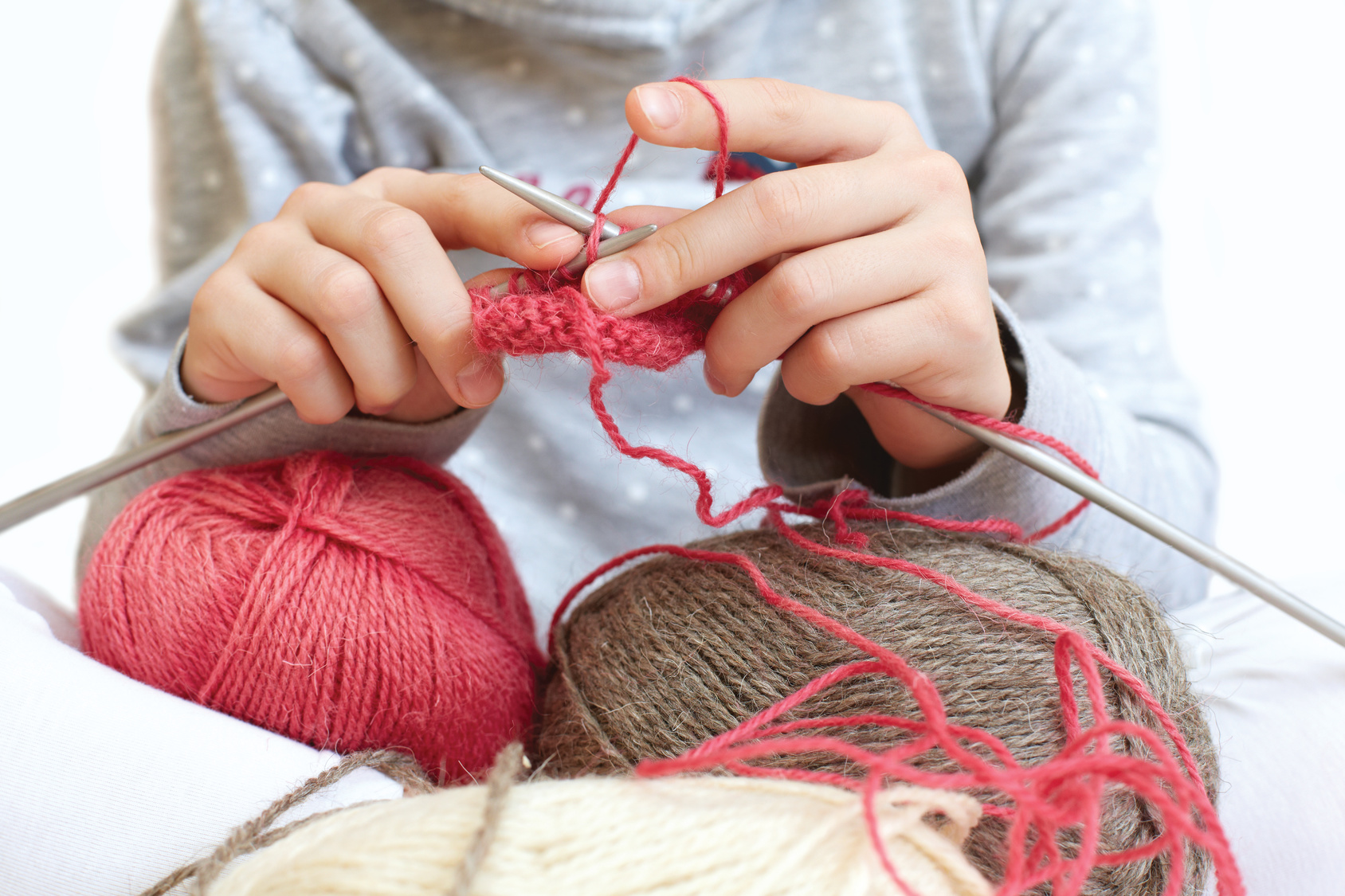



















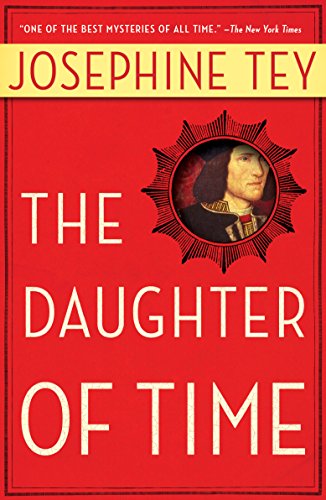




















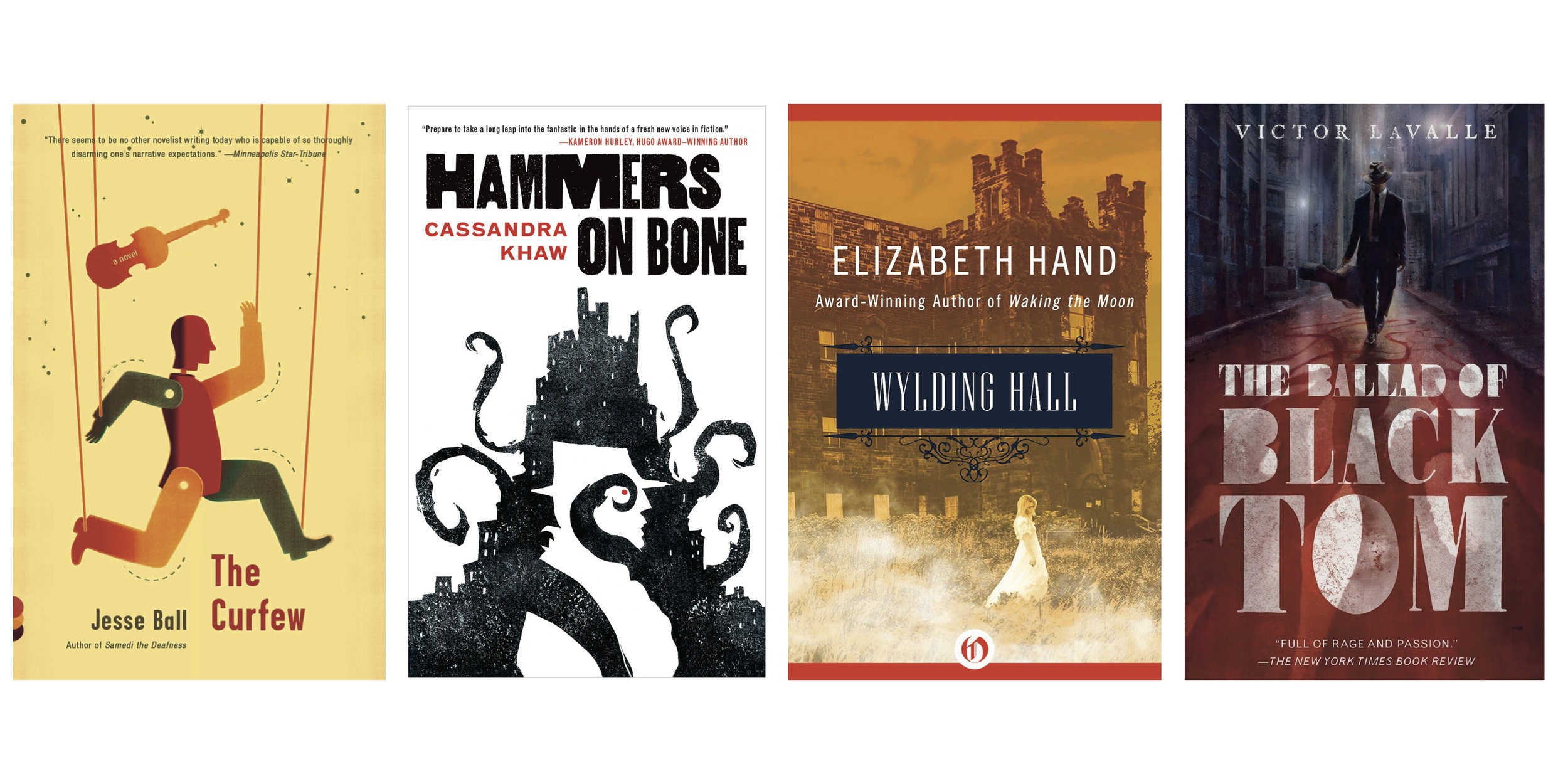






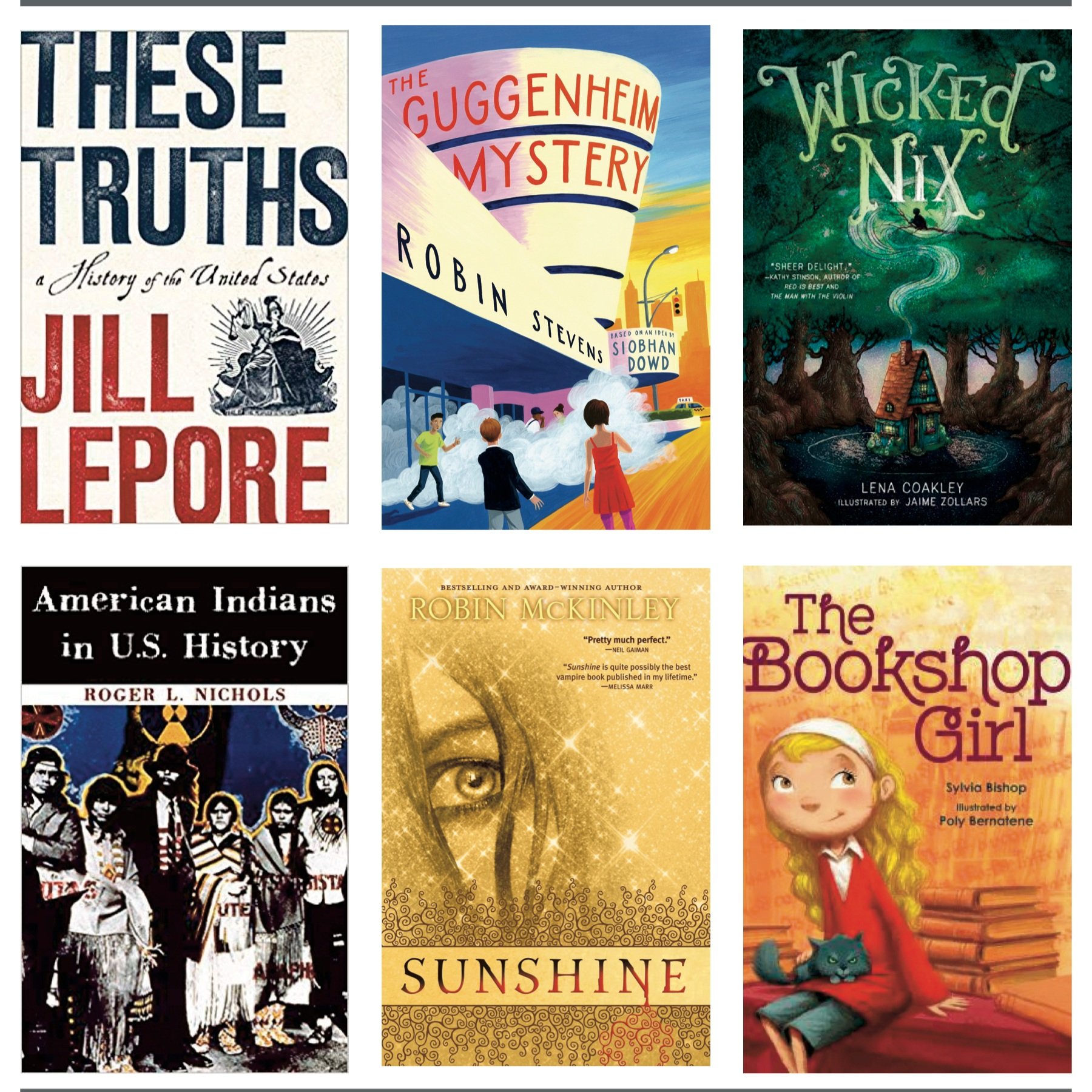



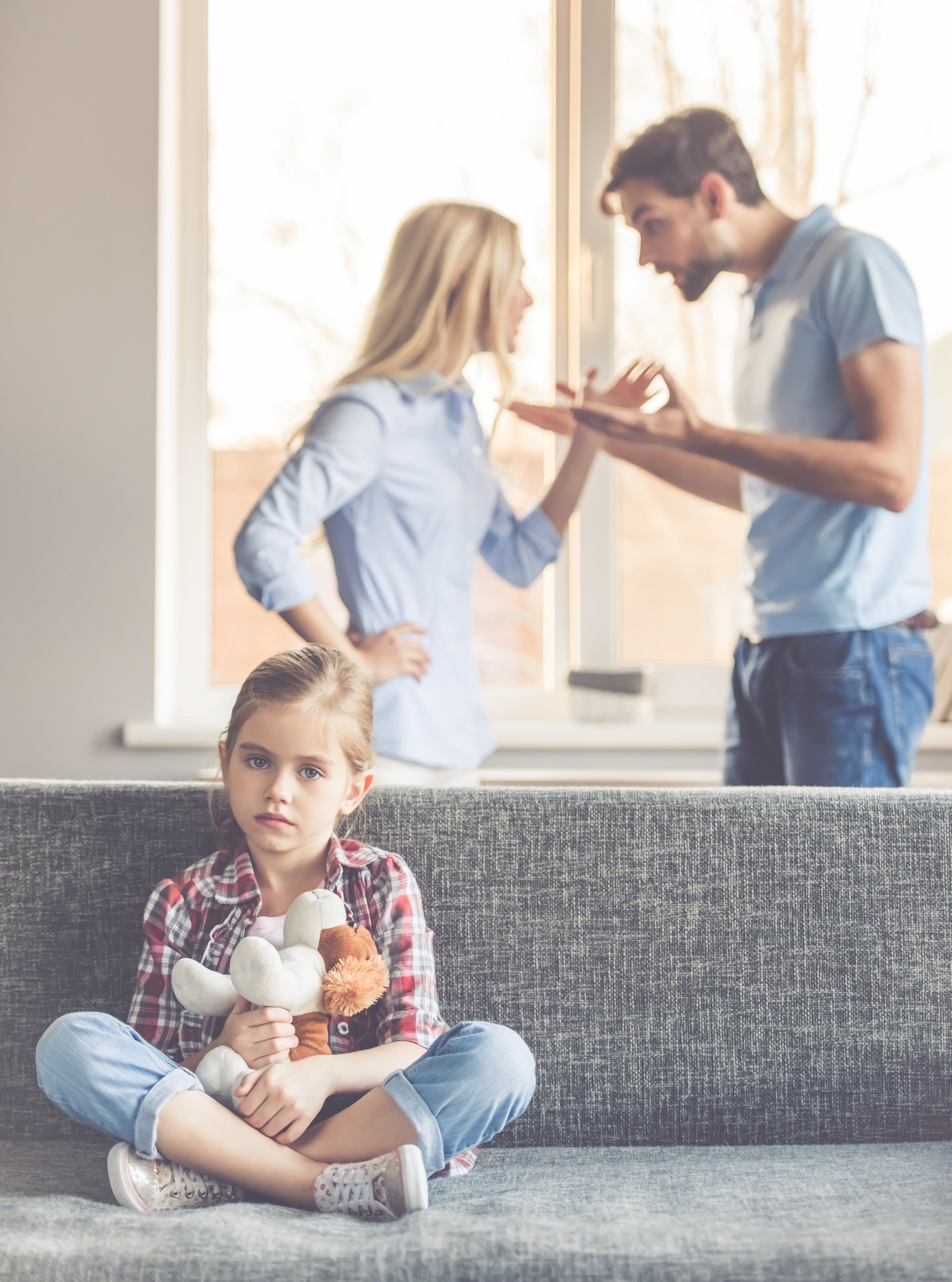







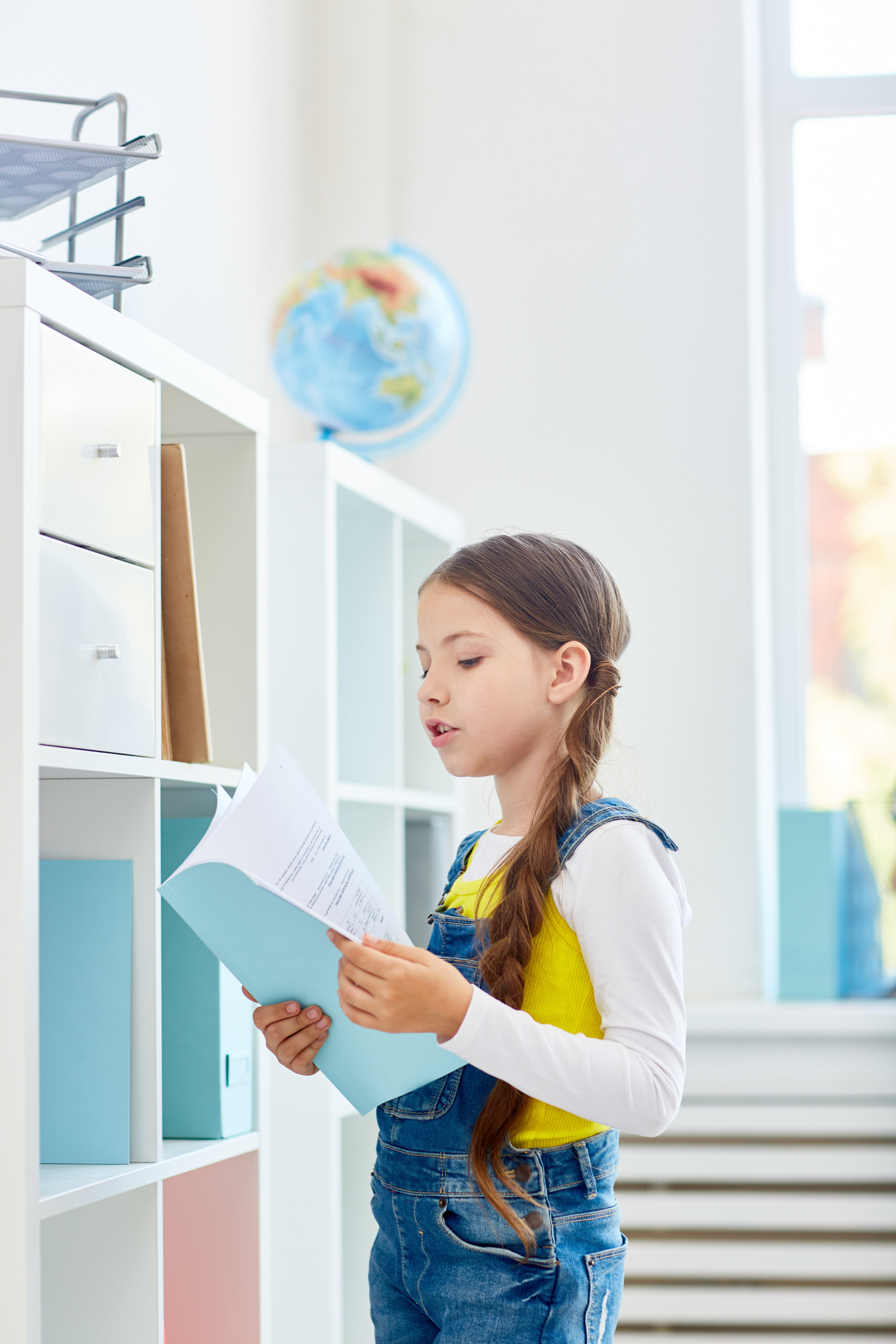




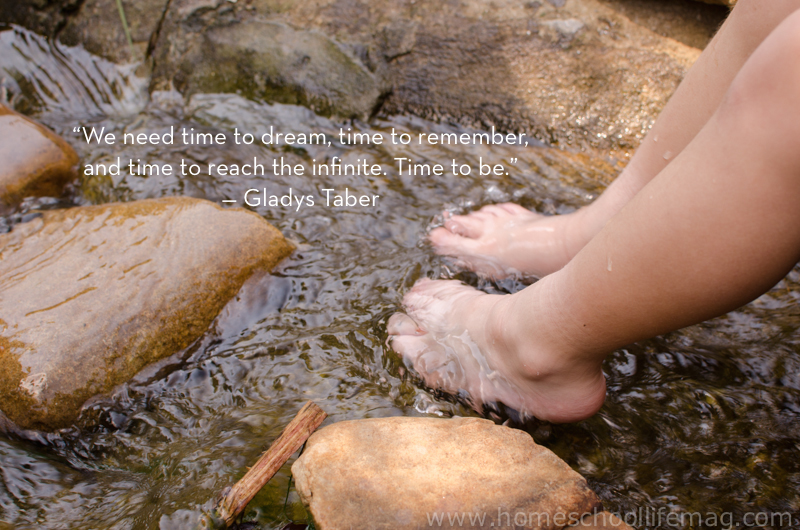





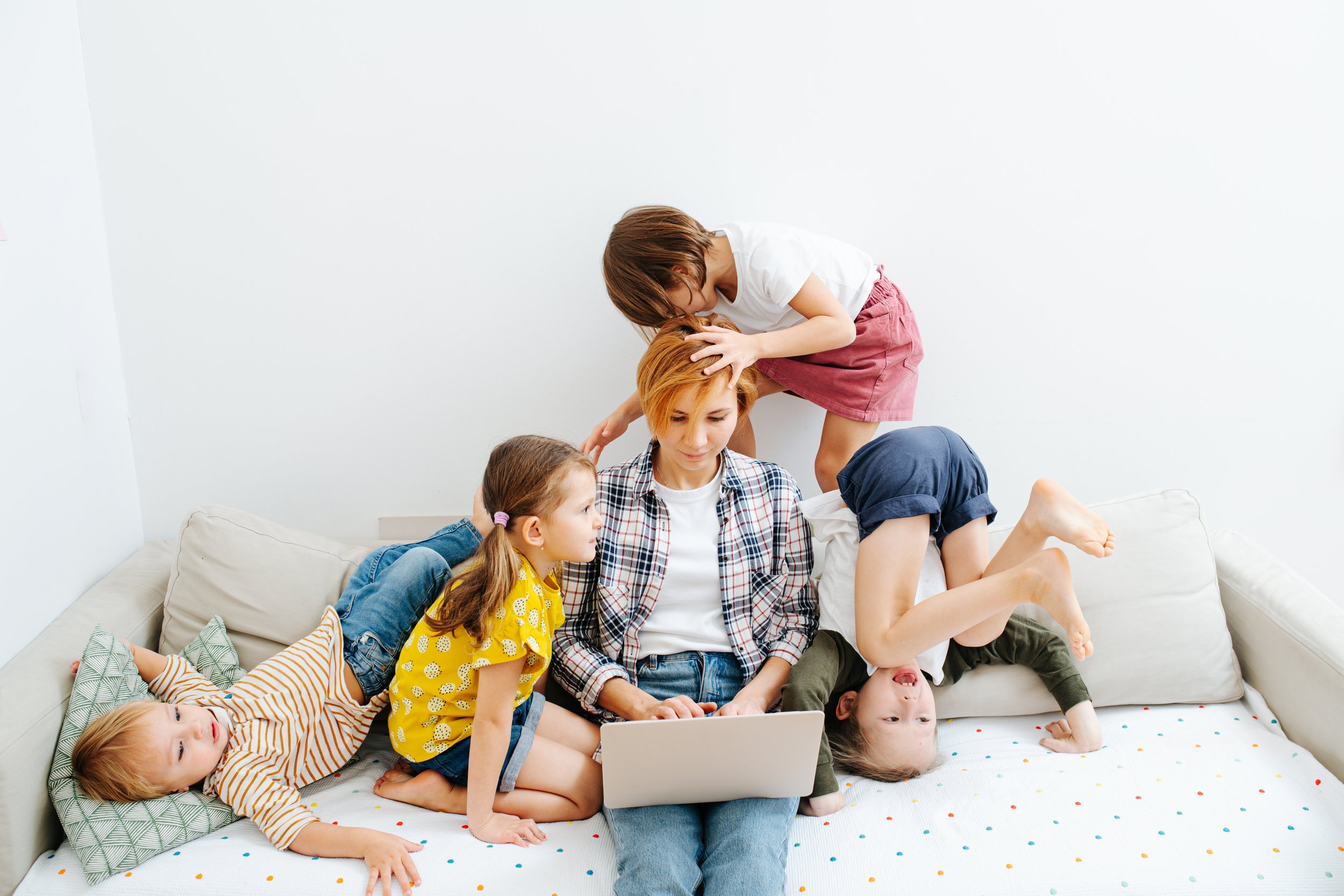








































SHELLI BOND PABIS is home | school | life magazine’s senior editor. She writes about her family’s homeschooling journey at www.mamaofletters.com.